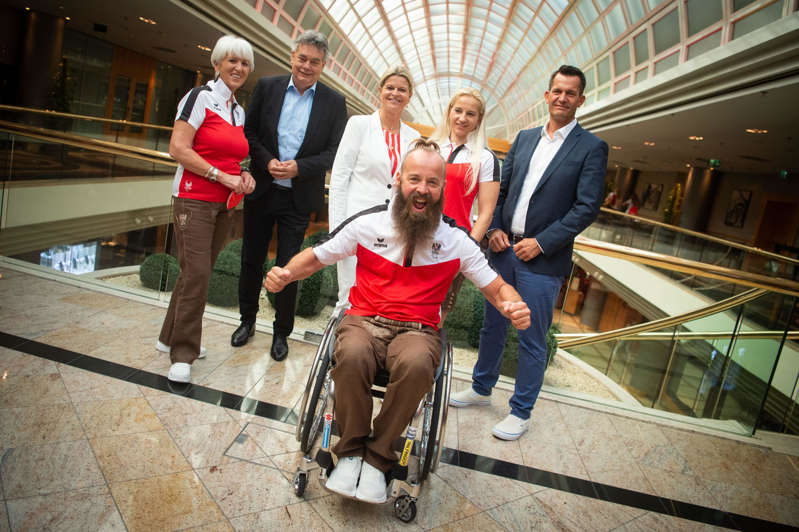Disabled athletes' games begin in Japan in two weeks. ÖPC with 24 athletes and medal expectations to Japan.

Two weeks after the Olympics, the XVI. Summer Paralympic Games. For athletes with disabilities, the Paralympics, which have been postponed by a year due to Corona and will last from August 24th to September 5th, are the highlight for which they have now been working for five years. Here and there are mixed feelings about the pandemic, but the ÖPC is confidently going to Japan.
From 18 to 59 years
“What we saw on site makes us look forward to the whole thing with confidence,” said Petra Huber, General Secretary of the Austrian Paralympic Committee. The red-white-red team that competes for medals in eight disciplines in Japan is 24 people. The largest contingent is cycling with six athletes, also in athletics, canoeing, riding, swimming, table tennis, triathlon and wheelchair tennis, Austria will be represented.
The youngest Austrian participant is swimmer Janina Falk at the age of 18. The Viennese, who has poor eyesight, will also be the first Austrian with a mental impairment to take part in the Paralympics. For them, as well as for ten other athletes, it will be the first Paralympic competition in Tokyo. The 59-year-old wheelchair tennis player Martin Legner is the oldest in the line-up to tackle his eighth games.
At the ÖPC, thanks to the medals won in London in 2012 (13) and most recently in Rio in 2016 (9/1 gold, 4 silver and bronze), they are confident that they will be able to bring home precious metal again this time. There are Rio medalists like dressage rider Josef Puch, handbiker Walter Ablinger, swimmer Andreas Onea and javelin thrower Natalja Eder. Huber: “Then there are those who have shown in recent months that they are in good shape.”
Great anticipation
The situation at Ablinger is special. The world-class handbiker became European champion at the beginning of June, but then had to take a break due to a urinary tract infection. Nevertheless, Ablinger achieved 13,100 kilometers of training. In Tokyo he is building a handbike three kilos lighter than Rio, with which he wants to succeed at the Fuji International Speedway – where Anna Kiesenhofer sensationally won Olympic gold. “I'm really looking forward to the games in Tokyo and I will give everything to win precious metal for Austria,” said Ablinger.
Huber found the Summer Games that ended on Sunday “very positive”. Despite the huge concerns about the corona, everything went well. “It is a great relief for everyone involved that the games went well and safely.” Huber also wishes for the Paralympics that some spectators or cheering athletes and supervisors had created a good mood here and there.
Huber cannot imagine that the Paralympics could still be in danger of being canceled due to the sharp rise in the number of positive cases in the city in recent weeks and the ongoing criticism of the Japanese government. “There were always these rumors in advance. But we always knew that it would not be like that. Everything is as it was before. We have no concerns that not everything will be dealt with as planned.”
View this post on Instagram
Safety precautions
Organizationally, the Paralympics run according to the same playbook as the games for non-disabled people. You move in bubbles, it is tested regularly. The ÖPC athletes arrive five to seven days before their competition, and they must return home no later than 48 hours after the last one. In total, the ÖPC convoy is around 80 people.
The Olympic Games, which have only just ended, suggest that, despite the pandemic, a fair, sporting competition can take place at the Paralympics with the greatest possible security. “During the games we are the most seamlessly monitored group on the planet,” says five-time Paralympic winner Michael Teuber in a survey by the German press agency . Olympia have shown that the system works. “A lot has been done to ensure that there is not a global superspreader event.”
The German cyclist Matthias Schindler is certain “that the risk of infection from the measures on site is lower than at home.” Finally, Schindler also thinks it is important “that athletes outside of football have the opportunity to show themselves and present their sport again. The special role played by football has given me food for thought in recent months.”

